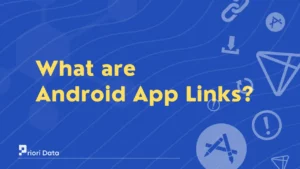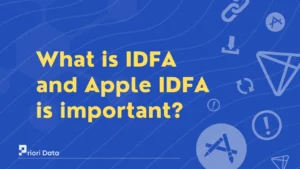An organic install refers to when a user downloads an app through an app store’s search results or featured lists, rather than through paid advertising or incentivized installs.
Unlike paid installs which come from advertisements, organic installs are “natural” and happen when users discover and download an app on their own initiative.
They are important because they signify genuine interest in an app from real users. Since the users found the app themselves in the app store without being targeted by ads, it means they were attracted by the app page’s branding, screenshots, description, reviews etc.
For app developers, organic installs are highly valuable because they signify an app’s ability to attract real users without paid promotion.
Organic install volume is therefore an important metric that demonstrates product-market fit and can forecast long-term retention and engagement. This makes increasing organic installs a key goal for app marketers.
Why Are Organic Installs Important?
Organic installs are highly valued by app developers for several reason:
1. Higher retention rates: Organic users who discover and download an app out of their own interest tend to be more engaged and active than those who install from ads. This leads to better retention rates.
2. Lower costs: There are no advertising costs associated with organic installs. This allows apps to acquire users in a cost-efficient manner.
3. Algorithm rewards: App stores like Google Play Store use algorithms to recommend apps to users. More organic installs signal an app’s relevancy and can lead to better ranking in recommendations.
4. Credibility: Lots of organic installs and positive reviews lend credibility to an app and build trust. This attracts further organic users.
5. Insights into demand: The level of organic installs demonstrates real user demand for an app’s offering. Developers can utilize these insights for future product decisions.
How Does an App Get Organic Installs?
There are several strategies app developers use to attract organic installs,
- Keyword research – Identifying relevant keywords users search for and optimizing app store listings for those keywords using ASO (app store optimization) helps apps get discovered.
- High-quality app page – Great visuals, clear messaging, and social proof elements like ratings/reviews encourage installs from the app’s store page.
- PR and influencer marketing – Earning press mentions and influencer endorsements expose apps to new audiences organically.
- Social media marketing – Engaging users on social networks like Facebook, and Instagram helps drive awareness. Links can direct users to install.
- Referral programs – Offering existing users rewards for referrals taps into word-of-mouth recommendations.
- Retargeting – Remarketing to visitors who didn’t install right away via ads nudges them to reconsider.
- Email marketing – Email channels allow informing subscribers of new features, updates, and encouraging installs.
- Content marketing – Useful, relevant content like blogs, guides, videos establishes brand authority and organic visitors who may install.
- App indexing – Making the app content discoverable to search engines allows users to find and navigate to the app store listing.
- Ratings and reviews – Positive ratings and reviews create a bandwagon effect where others install based on social proof.
F.A.Q
Q1: What is the difference between Organic Install and non-organic Install?
A1. Organic installs come from unpaid sources like app store searches, while non-organic installs come from paid advertising.
Q2: What is the purpose of app installation?
A2. The purpose of app installs is to get an app on user devices so they can use it.
Q3: What does organic mean in digital?
A3. Organic in digital marketing means unpaid, natural growth rather than paid advertising.
Q4: What are examples of organic systems?
A4. Examples of organic systems are SEO, social media, and email marketing.
Q5: Why are app downloads important?
A5. Downloads are important for growing an engaged user base.
Q6: How do I get organic traffic to my apps?
A6. Get organic app traffic through ASO, content marketing, and social media marketing.






